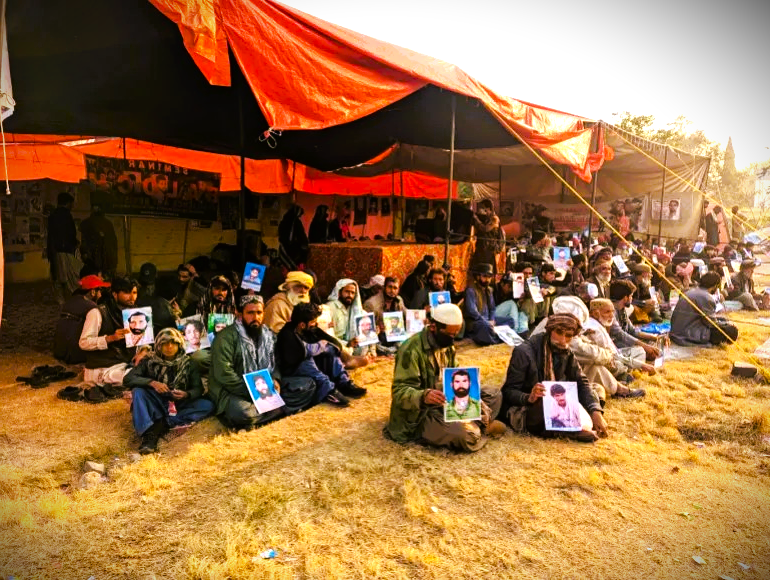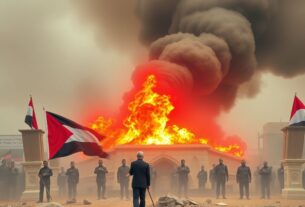On a quiet evening in Mashkay, a remote town tucked in the volatile landscape of Pakistan’s Balochistan province, journalist Abdul Latif was murdered in cold blood, shot dead in front of his wife and children. His crime? Telling the truth.
Latif, a respected reporter known for his fearless coverage of human rights violations in Balochistan, became the latest casualty in what activists have long described as Pakistan’s covert “kill and dump” campaign a chilling pattern of enforced disappearances and extrajudicial killings targeting journalists, activists, and dissidents.
The attack was swift and brutal. Unidentified gunmen stormed Latif’s home in the Awaran district, attempting to abduct him. When he resisted, he was executed on the spot. “They didn’t just kill him,” said a local rights advocate who requested anonymity. “They made sure his family watched. That was the message.”
A Silenced Voice, a National Shame
Abdul Latif had worked with Daily Intikhab and Aaj News, two outlets that dared to publish voices from Pakistan’s most suppressed region. His stories chronicled a world the rest of Pakistan and much of the world refuses to acknowledge: mass abductions, military operations, and the slow disappearance of an entire culture.
Just months earlier, Latif had already suffered an unimaginable loss; his eldest son, Saif Baloch, along with seven other family members, had been kidnapped. All were later found dead.
“This is not just the story of one man or one family,” the Baloch Yakjehti Committee stated following Latif’s murder. “This is a campaign of terror designed to erase the Baloch identity. We urge the United Nations, international media, and press freedom organisations to confront these crimes against humanity.”
The Mechanics of Repression
In Balochistan, repression does not hide, it rules. The phrase “kill and dump” is not speculative rhetoric. It describes a methodical system where those who speak out vanish, only to reappear days or weeks later, tortured or dead, dumped by the roadside or in shallow graves. In many cases, they don’t reappear at all.
Human rights groups, including Amnesty International and Human Rights Watch, have for years documented evidence of these abuses. Yet Pakistan’s powerful military establishment continues to deny involvement, often attributing such acts to insurgents or “unknown elements.”
“The journalist’s killing is part of a pattern that cannot be ignored,” said Shalee Baloch, organiser of the Baloch Women Forum. “The state’s silence and the international community’s indifference has normalized a genocide. Enough is enough.”
Journalism as a Death Sentence
According to Reporters Without Borders, Pakistan ranks among the most dangerous countries in the world for journalists. But Balochistan is in a category of its own. Here, journalism is not just censored, it is hunted.
Latif’s death follows a series of killings and enforced disappearances that have targeted those documenting the region’s unrest. Journalists are frequently harassed, detained, and silenced. Access for foreign media is tightly controlled, and local journalists often work under threats not just from militants, but from state agencies.
The Pakistan Federal Union of Journalists (PFUJ) condemned the murder, calling for an independent investigation. But such calls, historically, rarely lead to justice.
The World Watches, and Waits
Despite the mounting death toll, the international response has been tepid at best. Global press freedom organisations, the United Nations, and major democratic governments have all issued periodic statements but little else. There have been no sanctions, no special investigations, no sustained diplomatic pressure.
Activists argue that this silence amounts to complicity. “The international community cannot claim to stand for press freedom or human rights while ignoring what’s happening in Balochistan,” said Shalee Baloch. “Justice delayed here isn’t just denied, it’s buried.”
A Martyr for the Truth
In death, Abdul Latif has become more than a journalist. He has become a symbol, a stark reminder that in Balochistan, the price of truth is often blood.
His reporting gave voice to the voiceless. His murder has reignited calls for justice. And his legacy now stands as a testament to the power and the peril of telling the truth in a country where truth is an enemy of the state.
Latif’s story is not over. It reverberates in the whispered fears of his colleagues, the determined cries of activists, and the broken silence of his grieving family. Until justice is served, his name like so many others will not fade. It will echo.
Because in Balochistan, the dead do not rest. They speak.




